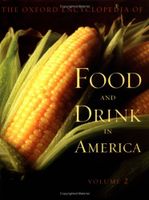Label
All
0
Clear all filters
Potatoes: Nutritional Dimensions
Appears in
Published 2004
Potatoes, simply boiled, baked, or roasted, are nutritious. Their dry matter provides easily digested carbohydrate calories from starch and protein that is high in lysine and low in sulfur-containing amino acids and thus complementary to the protein in cereal grains. Even a small tuber (100 grams), boiled in its skin, has 16 milligrams of ascorbic acid, which is 80 percent of a child’s or 50 percent of an adult’s daily requirement. Potatoes are also a good source of B vitamins (thiamine, pyridoxine, and niacin) and are rich in potassium, phosphorus, and other trace elements. Preparation of potatoes in fried form eliminates the problem that tubers are too bulky to be a dietary staple for infants or children without an energy-rich supplement. In the United States, however, when fried potatoes become the dominant “vegetable” in children’s diets, their consumption can pose a nutrition problem in the form of too many calories.
Become a Premium Member to access this page
Unlimited, ad-free access to hundreds of the world’s best cookbooks
Over 160,000 recipes with thousands more added every month
Recommended by leading chefs and food writers
Powerful search filters to match your tastes
Create collections and add reviews or private notes to any recipe
Swipe to browse each cookbook from cover-to-cover
Manage your subscription via the My Membership page
Best value
Part of
Advertisement
Related Recipes
-
-
-
-
Related Reference
-
-
-
-
Advertisement
The licensor does not allow printing of this title



